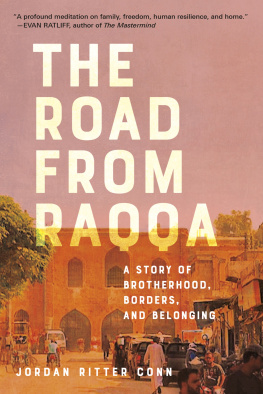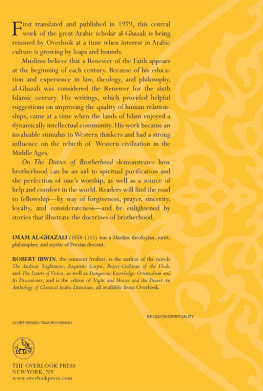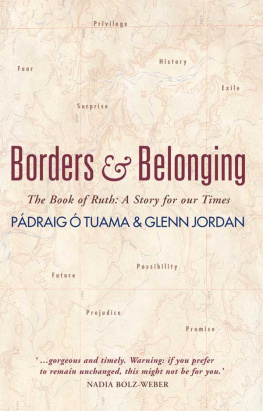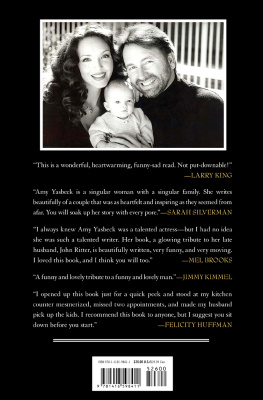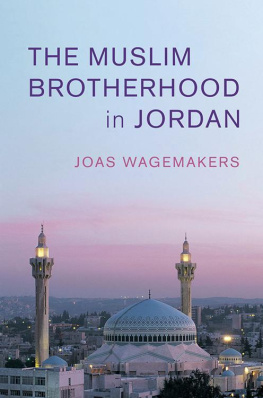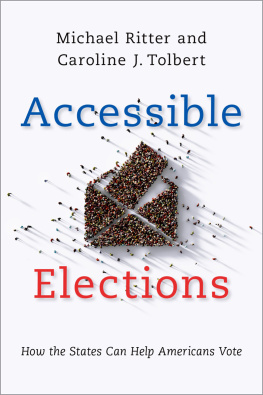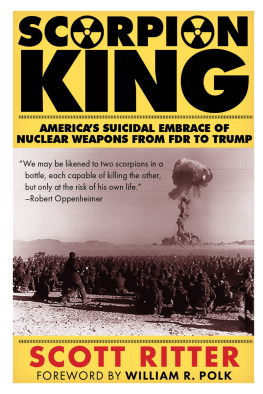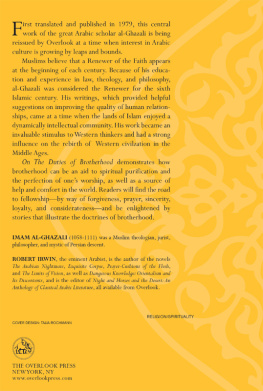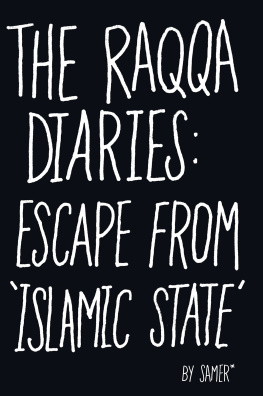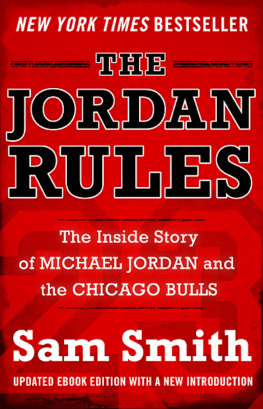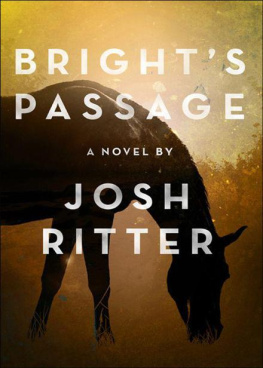Jordan Ritter Conn - The Road from Raqqa: A Story of Brotherhood, Borders, and Belonging
Here you can read online Jordan Ritter Conn - The Road from Raqqa: A Story of Brotherhood, Borders, and Belonging full text of the book (entire story) in english for free. Download pdf and epub, get meaning, cover and reviews about this ebook. year: 2020, publisher: Random House Publishing Group, genre: Detective and thriller. Description of the work, (preface) as well as reviews are available. Best literature library LitArk.com created for fans of good reading and offers a wide selection of genres:
Romance novel
Science fiction
Adventure
Detective
Science
History
Home and family
Prose
Art
Politics
Computer
Non-fiction
Religion
Business
Children
Humor
Choose a favorite category and find really read worthwhile books. Enjoy immersion in the world of imagination, feel the emotions of the characters or learn something new for yourself, make an fascinating discovery.
- Book:The Road from Raqqa: A Story of Brotherhood, Borders, and Belonging
- Author:
- Publisher:Random House Publishing Group
- Genre:
- Year:2020
- Rating:5 / 5
- Favourites:Add to favourites
- Your mark:
- 100
- 1
- 2
- 3
- 4
- 5
The Road from Raqqa: A Story of Brotherhood, Borders, and Belonging: summary, description and annotation
We offer to read an annotation, description, summary or preface (depends on what the author of the book "The Road from Raqqa: A Story of Brotherhood, Borders, and Belonging" wrote himself). If you haven't found the necessary information about the book — write in the comments, we will try to find it.
The Road from Raqqa: A Story of Brotherhood, Borders, and Belonging — read online for free the complete book (whole text) full work
Below is the text of the book, divided by pages. System saving the place of the last page read, allows you to conveniently read the book "The Road from Raqqa: A Story of Brotherhood, Borders, and Belonging" online for free, without having to search again every time where you left off. Put a bookmark, and you can go to the page where you finished reading at any time.
Font size:
Interval:
Bookmark:
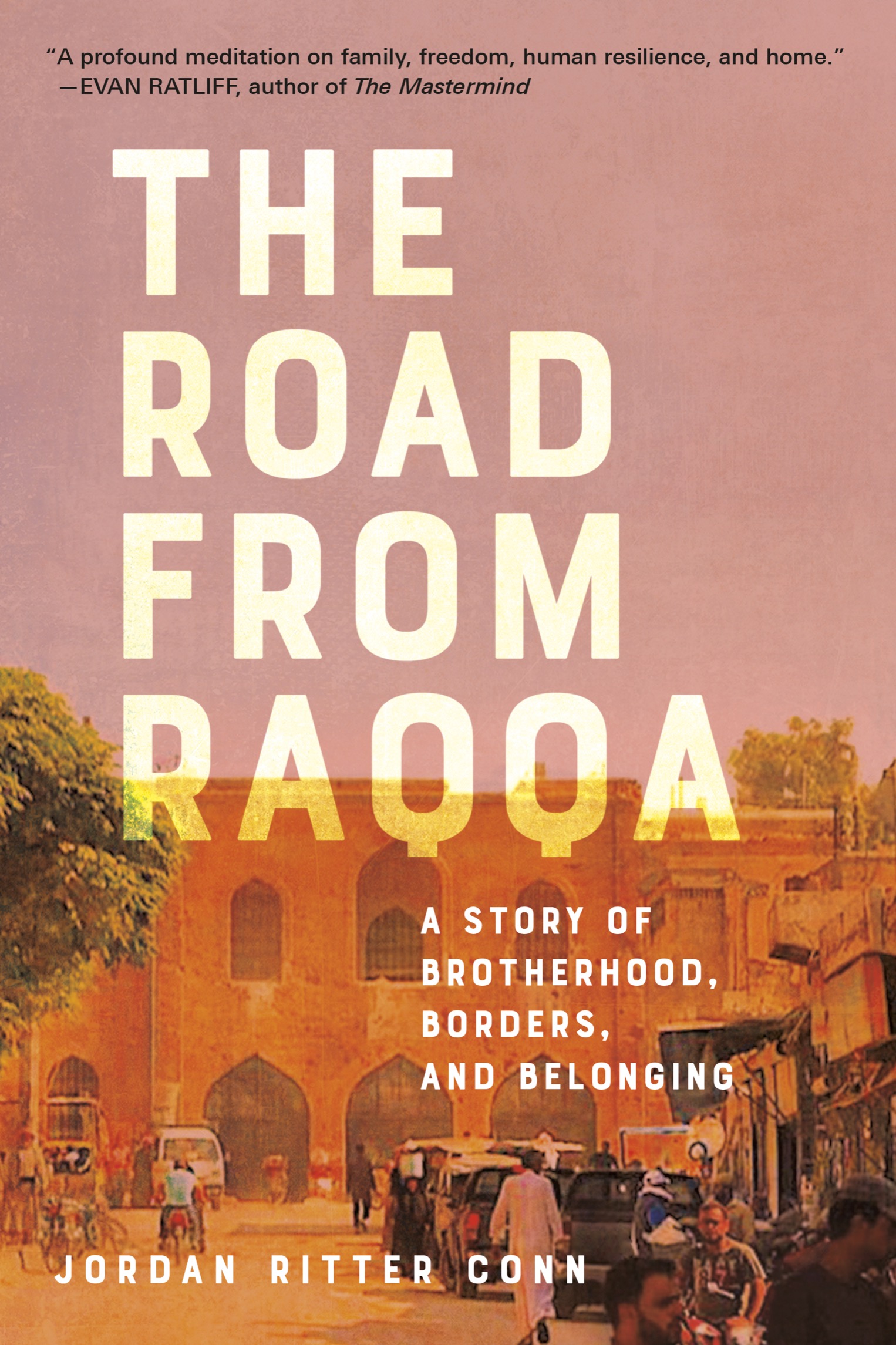
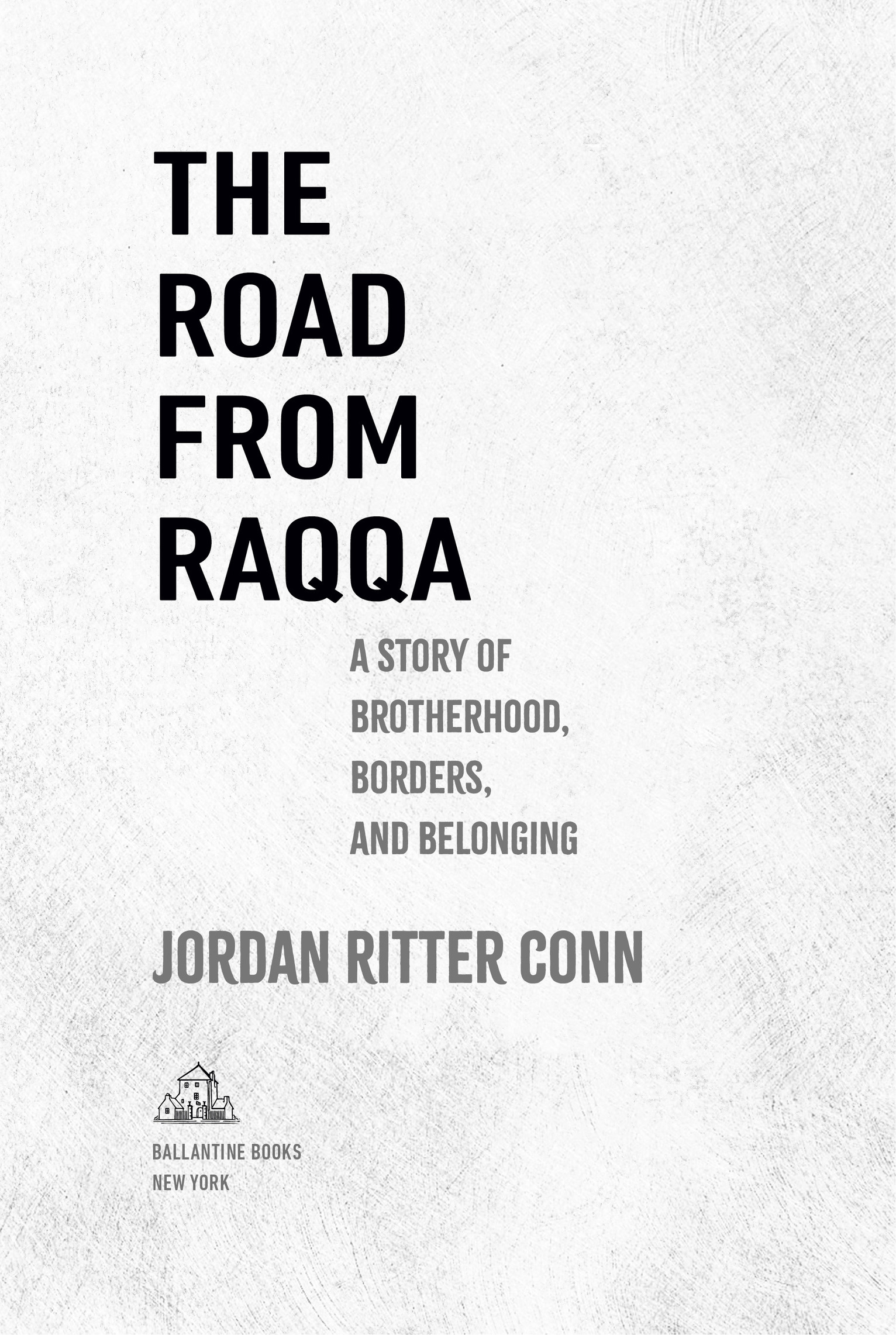
The Road from Raqqa is a work of nonfiction. Some names and identifying details have been changed.
Copyright 2020 by Jordan Ritter Conn
All rights reserved.
Published in the United States by Ballantine Books, an imprint of Random House, a division of Penguin Random House LLC, New York.
B ALLANTINE and the H OUSE colophon are registered trademarks of Penguin Random House LLC.
See My Raqqa is an online project to reintroduce the city of Raqqa in Syria to the world and preserve the cultural heritage of the city after it was destroyed during the battle to defeat the so-called Islamic State (ISIS) in 2017. The online project was launched in 2017 to include the voices of the residents of Raqqa in the future of the city, and it ultimately aims to support the revival of daily life and cultural events there. See My Raqqa gathers hundreds of pictures from different social media platforms of Raqqa before its destruction, in collaboration with local and foreign photographers.
seemyraqqa.com Facebook.com/SeeMyRaqqa Instagram.com/seemyraqqa
Hardback ISBN9781984817181
Ebook ISBN9780525482710
randomhousebooks.com
Book design by Jen Valero, adapted for ebook
Cover design: Rebecca Lown
Cover image: Osama al Khalaf/seemyraqqa.com
ep_prh_5.5.0_c0_r0
I first met Riyad Alkasem one afternoon in January 2016, when I pulled up to a restaurant in a Tennessee strip mall, tucked down the street from gun shops and bait shops, near stores bearing the word Dixie and trucks adorned with Confederate flags. Above the restaurant, there stood a sign that said CAF RAKKA . This, Id been told, was where Id find the best Arabic translator in Middle Tennessee.
For my then job at ESPN, Id recently returned from one trip to the Syria-Turkey border, and I was gearing up for another. I was reporting on a soccer team aligned with the Syrian rebel forces, a team that hoped to harness the power of sport for the purpose of revolution. Before I returned to the border for my second trip, I needed someone near my home in Nashville to help me place phone calls to an Arabic-speaking source. A friend at the Islamic Center pointed me toward Riyad.
I walked inside and introduced myself. His eyes were dark, his hair curly. He spoke with the ease of a man who had settled into his place in the world and the accent of someone who had journeyed a long way to find that place. Together, we called my source, and I watched Riyad fight back tears as the three of us spoke about the war tearing apart his homeland, about the men and women who believed they were fighting to build a better Syria than the one Riyad had years earlier left behind.
Afterward, he took me to a table. We sat. He summoned two cups of pomegranate tea and mountainous plates of shawarma and baba ghanoush. Finally I asked the only question on my mind: What was a restaurant named after Raqqa, Syriaa city then known as the home of the worlds deadliest terrorist organizationdoing here in Tennessee?
His answer unspooled over many hours that day and for several years afterward. Much of it centered on his relationship with his younger brother Bashar. Both of them, Riyad explained, loved their hometown, Raqqa. But Riyad had chosen to leave it decades ago, pulled by the promise of America. Now Bashar was being forced to do the same, pushed by the brutalities of terror and war.
I returned to the Syria-Turkey border the next month to continue reporting on the soccer players affected by their countrys war, but even there, I couldnt get Riyad and Bashars story out of my mind. Together, they represented two faces of immigrationthose who leave home for a brighter future and those who leave because their original home has become unrecognizable.
This book is their story. It is nonfiction. It is based primarily on their own accounts of their lives, though dates, times, locations, and additional facts have been confirmed with other sources. The dialogue is reconstructed based on the memories of Riyad, Bashar, and others who appear in the book. Some names have been changed to protect safety and privacy. Details of some characters livesfor example, the Alkasems mother and sisterhave been omitted for the same purposes.
This is by no means a full account of the Syrian civil war, the rise of the Islamic State, or the story of immigration in America. It is simply a telling of the story that grabbed me so fiercely that afternoon in that restaurant, a story about family bonds that endure through war and terror, about a search for home that stretches across decades and oceans.
This is the story of Riyad and Bashar.
They used to tell a story in the desert about an eighteenth-century warrior named Ibrahim, who led an Arab army across the Levantknown long before as Mesopotamiafighting on horseback and on camel for the Ottoman Empire. Ibrahim was loyal to the Ottomans and ruthless to their enemies, and so the empires leaders rewarded him with a gift. It wasnt much, just a swath of land in the desert, tucked inside the elbow of the Euphrates River, some of the land bare and desolate, some of it green and alive.
Only Ibrahim didnt care much for land. He was a warrior, not a settler. So he left the land untouched and continued to roam the Levant and to wage battle, uninterested in anyplace where he could not find a fight. Ibrahim had a son named Issa and a grandson named Hamed, also nomadic warriors, and Hamed had a son named Taha. When they would tell this story centuries later, the boys and girls of the desert would speculate that Taha did not like to fight like his father, grandfather, and great-grandfather, because if he liked to fight, then he would have continued roaming in search of violence, but instead he came to the land that had now been passed down to him, and he wondered if perhaps he should stay there, if perhaps he should build a life.
Taha found a spot that he liked. Dangerous tribes inhabited the lands western and eastern edges, but here in the center was a river and an ancient wall, long ago abandoned, and the river and wall together formed something of a cocoon, and Taha decided that here he would be safe. Here he would stay.
He put up a tent and decided to make coffee. He took a stone rod and used it like a mortar and pestle to smash the beans. When they were fully ground, he mixed them with water he boiled on a fire. He waited.
A breeze wafted in from the Euphrates, carrying the smell of coffee across the desert to small and scattered tribes. They took the smell of the coffee as an invitation. One by one, members of each tribe came to Taha and joined him. Together, they sipped.
Taha asked them to stay. Settle here, he said, and lets work together, share our resources to build a community. To convince them, he offered pieces of his land. Some said yes, and more tribes came. As the years passed, Taha gave away more pieces of his land until there were twelve subtribes in total, and together they decided that the sliver of land just north of their settlement would be the community land, to be divided among every male descendant of every original founder for as long as their city stood.
A city. Yes. Thats what it was now, with homes and markets and mosques and a school. They called it Raqqa. It would stand for centuries, here on this plot of land passed down from Ibrahim to Issa to Hamed to Taha, and its people would remain close-knit, cloistered as they were and uninterested in the outside world. Yet they would always greet visitors with extravagant welcome, providing warm beds and hearty meals and fresh coffee, just as Taha had once done.
Font size:
Interval:
Bookmark:
Similar books «The Road from Raqqa: A Story of Brotherhood, Borders, and Belonging»
Look at similar books to The Road from Raqqa: A Story of Brotherhood, Borders, and Belonging. We have selected literature similar in name and meaning in the hope of providing readers with more options to find new, interesting, not yet read works.
Discussion, reviews of the book The Road from Raqqa: A Story of Brotherhood, Borders, and Belonging and just readers' own opinions. Leave your comments, write what you think about the work, its meaning or the main characters. Specify what exactly you liked and what you didn't like, and why you think so.

